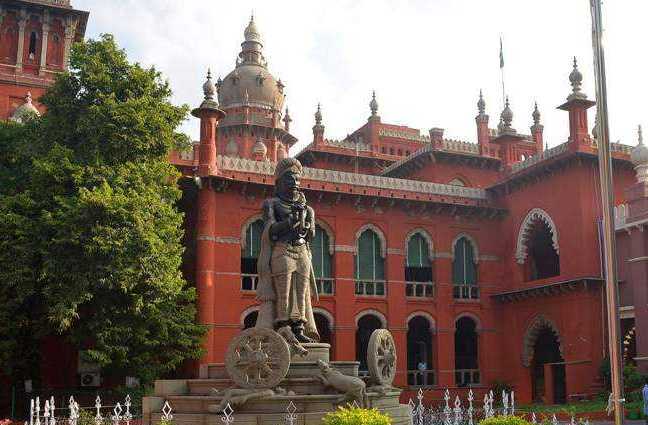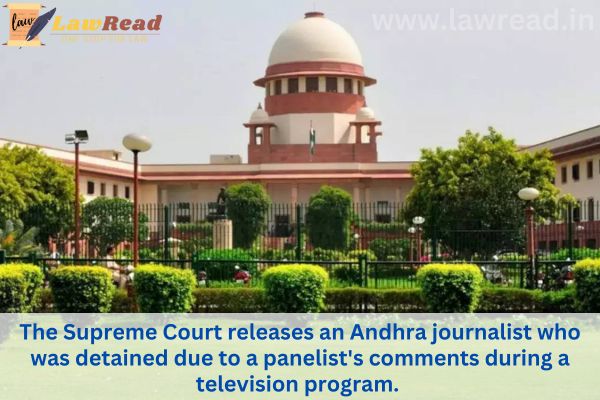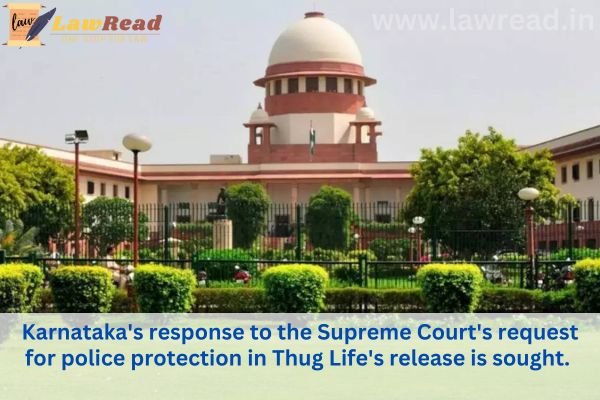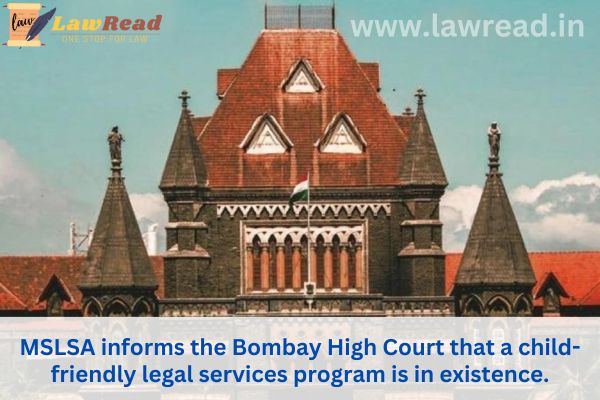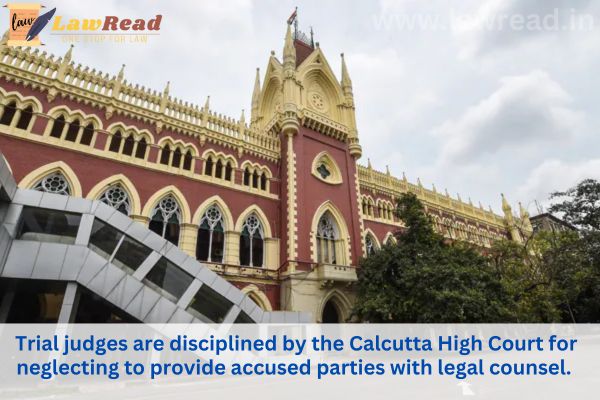News
This week's spotlight is on Justice JB Pardiwala.
Consequential rulings with political repercussions have shaped Justice Pardiwala's legal career.
.jpg)
In the Spotlight series, we highlight members of the legal community who have garnered media attention in the last week.
This week, the Supreme Court of India and Justice JB Pardiwala came under fire for a historic ruling that drew praise and criticism from netas and jurists of all political persuasions.
A two-judge panel led by Justice Pardiwala and including Justice R Mahadevan outlined the President's and Governors' authority over state legislature-passed legislation.
Tamil Nadu Chief Minister MK Stalin, whose government had appealed to the highest court against Governor RN Ravi's decision to keep ten bills pending for excessively long periods of time, hailed the ruling as historic, but Vice President of India Jagdeep Dhankar and others close to the ruling regime at the Center were annoyed by the decision.
The decision established a deadline for the Governors to take action on laws that were submitted to them for approval. The Court further outlined the parameters of the President of India's authority when the Governor reserves a measure enacted by the state legislature for the President's review. It stated that the President's choice in these situations is subject to court scrutiny and that they have three months to decide on the bill or provide the state in question with their reasoning.
The Supreme Court also stated that when a bill is reserved due to constitutional validity issues, the judiciary would determine whether it is constitutional and that such laws should be routinely presented to the Supreme Court under Article 143 of the Constitution.
In the end, the Court exercised its authority under Article 142 of the Constitution and ruled that the Tamil Nadu Governor had approved the ten legislation.
The consequences of the Governor's ruling on politics
The Court's decision did not sit well with Vice-President Dhankar. He claimed that without any accountability, the judiciary was functioning as a "super-parliament."
"A recent ruling has issued an order to the President. Where are we going? What's going on in the nation? Extreme sensitivity is required. It has nothing to do with whether or not someone files a review. Democracy was never negotiated for today. The president has a deadline to make a decision; if he doesn't, it becomes law. Since the law does not apply to them, judges will operate as super Parliament, enact laws, and carry out executive duties with no responsibility whatsoever," he stated.
Additionally, he referred to Article 142 as a nuclear missile directed at "democratic forces."
"[It] has become a nuclear missile against democratic forces, available to the judiciary 24x7," he said.
However, the Tamil Nadu government and other opposition figures celebrated the decision, referring to it as a "golden day in the history of India" and describing it as momentous. According to Chief Minister Stalin, the ruling is a major win for all Indian states and a confirmation of Dravidian politics, federalism, and state sovereignty.
Palanivel Thiagarajan, the Minister of Information Technology and Digital Services in Tamil Nadu, stated that rulings such as these "remove a lacuna in the procedural implementation of the Constitution, which has been exploited unscrupulously in the past" and improve constitutional interpretations.
In its ruling, the Court bemoaned the "scant respect shown by the Governor" to a previous ruling on the Governor's tardiness in approving laws. Additionally, it outlined the expected role of the governor, particularly in places where opposition parties hold sway.
"He must perform his role of a friend, philosopher and guide with dispassion, guided not by considerations of political expediency but by the sanctity of the constitutional oath he undertakes."
Justice Pardiwala, a prospective Chief Justice of India (CJI), has already made headlines. His legal career is characterized by significant rulings that affected politics. We look at the significant court rulings and controversial incidents that have influenced his rise in the Indian legal system.
Justice Pardiwala is who?
On August 12, 1965, Justice Jamshed Burjor Pardiwala was born into a prominent Gujarati legal family from Valsad. He is a lawyer of the fourth generation.
Navrojji Bhikhaji Pardiwala, his great-grandfather, started practicing law in Valsad in 1894. Cawasji Navrojji Pardiwala, his grandpa, became a lawyer in 1929 and continued to practice until 1958. Burjor Cawasji Pardiwala, his father, entered the field in 1955. From December 1989 to March 1990, he also held the position of Speaker of the 7th Gujarat Legislative Assembly.
Justice Pardiwala began his legal career in Valsad in 1989, just like the other generations of his family. But the following year, he relocated to the Gujarat High Court.
He joined the Gujarat High Court as an additional judge in 2011 and was made a permanent judge in 2013. On May 9, 2022, he was promoted to the Supreme Court, and in May 2028, he is anticipated to be appointed Chief Justice of India (CJI). He will hold the position of CJI for a comparatively long period of more than two years, until August 2030.
Significant decisions and the activities of the Punjab governor
In her ruling on April 8, Justice Pardiwala has previously criticized governors for blocking state legislatures.
A bench consisting of Justice Pardiwala, Justice Manoj Misra, and then Chief Justice DY Chandrachud criticized Punjab Governor Banwarilal Purohit in November 2023 for raising questions over the Speaker of the House's demand for a special assembly session.
Even yet, the Court ruled that the Governor may not "virtually veto" the elected legislature's operations by merely stating that assent is denied without taking any more action.
condemning the Gujarati government for the riots of 2002
A Gujarat High Court bench made up of Acting Chief Justice Bhaskar Bhattacharya and Justice Pardiwala chastised the Narendra Modi-led State administration in February 2012 for doing nothing to stop the demolition of more than 500 religious buildings during the 2002 riots.
Reservation views
Additionally, Justice Pardiwala served on a Constitution Bench that, by a vote of 3 to 2, upheld the 103rd Amendment to the Indian Constitution. The statute established reservations for Economically Weaker Sections (EWS) of society in government employment and education. The Scheduled Castes and Scheduled Tribes are not the only groups that can be interpreted as "weaker sections" under Article 46, according to Justice Pardiwala's separate conclusion.
Crucially, he added that quotas and reservations cannot last forever.
In his 117-page ruling, Justice Pardiwala concluded that advancements in education and development have significantly reduced the difference between classes. According to the judge, a review of the process for identifying and classifying backward classes was required in order to determine if the standards used to classify them were still applicable in the current situation.
According to Justice Pardiwala, the 103rd Amendment's new idea of economic criteria for affirmative action might significantly help remove caste-based reservations.
Disputes
Similar opinions on reservations were voiced by Justice Pardiwala during Hardik Patel's Patidar movement. When Justice Pardiwala declined to dismiss the sedition charge against Patel and other important leaders of the Patidar agitation movement, controversy broke out. He referred to the reservation system as a "amoeboid monster" in his ruling, claiming that it is to blame for the "destruction of the country" coupled with corruption.
He got into difficulty in 2015 as a result of these remarks, and the Rajya Sabha received an impeachment motion against him.
It's interesting to note that the opposition parties that are now applauding his ruling on governors were the ones who had attempted to have him impeached. He was the target of an impeachment motion submitted by up to 58 Rajya Sabha Members of Parliament (MPs). Leaders of the Congress, DMK, BSP, JD (U), NCP, CPI, CPI (M), and others were among the signatories. The Members of Parliament stated,
"That Justice JB Pardiwala should be ignorant of the constitutional provision pertaining to the policy for the SCs and the STs is distressing."
They went on to say that his remarks are unlawful and constitute "behavior misconduct towards the Constitution of India," which is grounds for the removal of the man.
But after the Gujarat administration submitted a request to the High Court, the judge retracted his comments.
In the judgment, he stated, "paragraph 62 was neither necessary nor relevant for the purpose of deciding the main matter, and in such circumstances, paragraph 62 may be deleted."
The dispute quickly subsided.
With more than five years left on his term, Justice Pardiwala will undoubtedly be at the center of a lot more controversial situations. He will undoubtedly have a significant impact on the development of the legal system and the Supreme Court's future in his capacity as a judge and, subsequently, as CJI. It will be intriguing to see how he handles his position at a time when the judiciary has come under fire for not doing more to curb parliamentary injustices and executive excesses.

